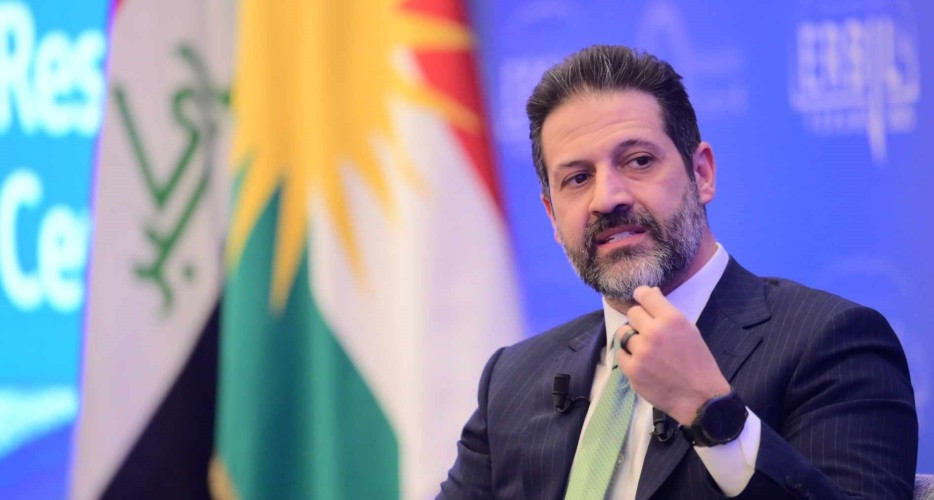Qubad Talabani Says Time for Services and Reconstruction After Erbil-Baghdad Oil Deal

Peregraf
Kurdistan Regional Government (KRG) Deputy Prime Minister Qubad Talabani has welcomed the landmark oil export agreement between Erbil and Baghdad, describing it as a turning point that should pave the way for reconstruction, services, and development across both the Kurdistan Region and Iraq.
“The agreement between the Kurdistan Region and Baghdad on the issue of oil exports is a great achievement for the people of Kurdistan and Iraq and opens the door to fundamentally resolve all our other problems and disputes in accordance with the constitution and through continuous dialogue and negotiations,” Talabani said in a statement.
He stressed that with the deal now reached, attention must shift toward meeting the needs of citizens. “After this agreement, we will intensify our efforts to ensure and guarantee all the rights and financial entitlements of the Kurdish people, because after many years of crisis and conflict, now is the time for services, reconstruction and comprehensive development,” Talabani said.
The deputy prime minister also extended his gratitude to those who contributed to the success of the negotiations, saying: “I would like to thank the negotiating teams and those who have continuously contributed to the success of the negotiations and without them this important achievement would not have been achieved.”
Oil exports to resume September 27
Under the agreement, oil from the Kurdistan Region is scheduled to reach the global market through the KRG-Ceyhan pipeline starting Saturday, September 27, 2025, at 6:00 a.m.—the first such exports in more than two years.
Iraqi Prime Minister Mohammed Shia’ al-Sudani hailed the agreement as “an achievement 18 years in the making,” highlighting its role in ensuring fair wealth distribution, diversifying export outlets, and encouraging investment.
The deal consists of six main articles and a preamble, defining the rights, entitlements, and obligations of all parties. It stipulates that all crude oil produced in the Kurdistan Region—except amounts designated for local consumption—will be delivered to the Iraq National Oil Company (SOMO) for export via Turkey. Revenues will be deposited into the federal treasury in Baghdad, from which Kurdistan’s salaries and entitlements will be funded.
KRG hails “historic agreement”
KRG Prime Minister Masrour Barzani called the agreement “the result of tireless efforts by teams and delegations from all parties,” including international oil companies, the federal Ministry of Oil, and SOMO.
“With this step, the Kurdistan Region reconnects to global oil markets,” Barzani wrote on X. “On this historic day, a major obstacle to securing the financial dues of the people of Kurdistan was removed. With the resumption of oil exports, we emphasize the need to fulfill all constitutional rights of the Kurdistan Region.”
The KRG’s Ministry of Natural Resources confirmed that exports would resume within 48 hours, with a joint meeting scheduled for Saturday morning to oversee operations.
Ending a two-year deadlock
The agreement resolves a standoff that began in March 2023, when an international arbitration court in Paris ruled in favor of Baghdad in its dispute with Ankara over the Iraq-Türkiye pipeline. That ruling halted Kurdish exports through Turkey’s Ceyhan port, cutting nearly 230,000 barrels per day from global markets and depriving the Kurdistan Region of a critical revenue stream.
The Iraqi Federal Ministry of Oil stressed that the deal aligns with the constitution, the Federal General Budget Law, and Federal Court rulings. The ministry also pledged transparency in revenue management, noting that the agreement would boost budget revenues, strengthen public finances, and improve the government’s capacity to fund services and nationwide development projects.
Looking ahead
With exports set to restart this weekend, both Erbil and Baghdad have signaled readiness for a new phase of cooperation. For the Kurdistan Region, the deal is expected to provide financial stability and ensure regular salary payments. For Baghdad, it consolidates authority over oil revenues and reinforces Iraq’s position in global energy markets.
Talabani concluded by reaffirming that dialogue is the only viable path forward: “Through dialogue with Baghdad, we can best serve our people and our Region.”